出版物
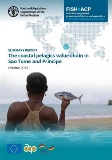
The coastal pelagics value chain in Sao Tome and Principe
2023
This report presents the results of the value chain analysis of the coastal pelagics value chain in Sao Tome and Principe conducted from 2021-2022 by the value chain development programme FISH4ACP. This report contains a functional analysis of the value chain, assesses its sustainability and resilience, develops an upgrading strategy and an implementation plan to which FISH4ACP will contribute.
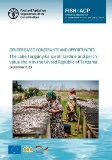
The Lake Tanganyika sprat, sardine and perch value chain in the United Republic of Tanzania: Gender-based constraints and opportunities
2023
This report presents the results of the value chain analysis of the Lake Tanganyika sprat, sardine and perch value chain in The United Republic of Tanzania conducted from 2021-2022 by the value chain development programme FISH4ACP. This report contains a functional analysis of the value chain, assesses its sustainability and resilience, develops an upgrading strategy and an implementation plan to which FISH4ACP will contribute.
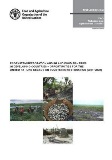
Ecosystem restoration and inland food fisheries in developing countries
2023
The review presents the strong business case for inland food fisheries in developing countries to be either a co-benefit, or very often the main benefit, of ecosystem restoration. In view of the current state of inland water aquatic habitats the potential for restoration is high. Realizing this potential requires concerted action to overcome current challenges, foremost of which is the invisibility of inland fisheries in many policy arenas as well as technical and scientific fora.
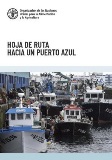
Roadmap to a Blue Port
2023
Roadmap to a Blue Port is intended to assist fishing ports to implement a Blue Transformation approach at strategic and operational level through the involvement of stakeholders, the implementation of projects and actions, and the measurement of impact.
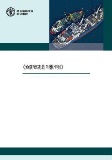
渔获物转载自愿准则
2023
《转载自愿准则》涉及对以前未上岸的鱼品的转载的管理、监测和控制,不论是否加工。制定这些准则是为了补充和支持现有的和新的努力和政策,认识到应当根据国际法和其他国际文书,利用一切可用手段预防、阻止和消除非法、不报告和不管制(IUU)捕鱼以及支持IUU捕鱼的与捕鱼有关的活动。该自愿准则的目标是协助各国、区域渔业管理组织和安排、区域经济一体化组织和其他政府间组织制定新的转载规则、修订现有规则并将这些规则纳入更广泛的管制框架。
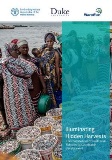
Illuminating Hidden Harvests
2023
Illuminating Hidden Harvests: the contributions of small-scale fisheries to sustainable development (hereinafter IHH) is a global study uncovering the contributions and impacts of small-scale fisheries through a multidisciplinary approach to data collection and analysis.
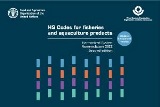
HS Codes for fisheries and aquaculture products. Harmonized System. Nomenclature 2022
2023
This publication, developed by the Food and Agriculture Organization of the United Nations (FAO), with the active support of the World Customs Organization (WCO), builds on the Harmonized System: Nomenclature 2022 edition. It presents all possible classifications for fisheries and aquaculture products by species, with a full description of each HS code, to facilitate its use within the fisheries sector, including aquaculture.
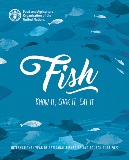
Fish: Know it, cook it, eat it
2022
Fish is crucial for global food security, providing vital protein for billions. It supports sustainable food systems and diverse culinary traditions worldwide. Learn about nutrition, avoid fish fraud, and understand environmental challenges through engaging content. Enjoy recipes from renowned chefs promoting zero waste and biodiversity.
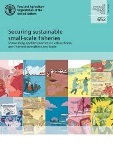
Securing sustainable small-scale fisheries – Showcasing applied practices in value chains, post-harvest operations and trade
2020
This document includes nine studies showcasing applied practices and successful initiatives in support of enhancing small-scale fisheries value chains, post-harvest operations and trade, based on the recommendations contained in the SSF Guidelines.
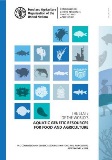
The State of the World's Aquatic Genetic Resources for Food and Agriculture
2019
The conservation, sustainable use and development of aquatic genetic resources (AqGR) is critical to the future supply of fish. The State of the World’s Aquatic Genetic Resources for Food and Agriculture is the first ever global assessment of these resources, with the scope of this first Report being limited to cultured AqGR and their wild relatives, within national jurisdiction.
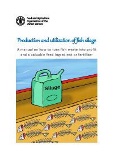
Production and utilization of fish silage
2018
The processing of fish leads to a significant removal of parts of the fish, such as heads, bones, guts, etc., these parts can represent between 30-70% of the fish. The fish silage process transforms fish waste into a liquid mix of hydrolysed proteins, lipids, minerals and other nutrients, easily digestible by both terrestrial and aquatic animals. It can also serve as an excellent fertilizer.
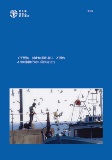
关于港口国预防、制止和消除 非法、不报告、不管制捕鱼的措施协定. 修订版
2016
《关于预防、制止和消除非法、不报告、不管制捕鱼港口国措施协议》旨在通过并实施有效的港口国措施来预防、制止并消除非法、不报告和不管制捕鱼活动,作为确保海洋生物资源获得长期养护和可持续利用的手段。其目的是使各缔约方在作为港口国的权能范围内,针对无权悬挂其旗帜的船只,广泛有效适用该协议。协议适用于寻求进入缔约方港口或在其港口期间的船只。某些手工捕鱼和集装箱船不在协议管辖范围内。本协议特别重视发展中国家的需求,支持这些国家努力落实协议内容。
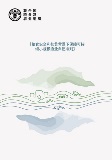
粮食安全和扶贫背景下保障可持续小规模渔业自愿准则
2015
《粮食安全和扶贫背景下保障可持续小规模 渔业自愿准则》(《准则》)旨在为1995年 的粮农组织《负责任渔业行为守则》提供补 充。其目的是就小规模渔业提出补充性指导 意见,为《负责任渔业行为守则》的总原则 和规定提供支持。因此,《准则》将有助于在 小规模渔业现有重要作用的基础上,进一步提 升其形象和认知度,加强其作用,促使其为全 球、国家层面消除饥饿和扶贫做出贡献。《 准则》还在注重小规模渔民和渔工及相关活 动,包括弱势及边缘化群体的基础上,促进采 用基于人权的方法,支持负责任渔业和可持 续社会、经济发展,造福当代及子孙后代。
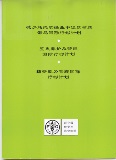
捕捞能力管理国际行动计划的法律文本
1999

粮农组织负责任渔业行为守则
1995
自古以来,捕鱼一直是人类赖以生存的主要食物,并为从事这项活动的人们提供了就业和经济利益。丰富的水生资源被认为是自然的无限恩赐。但是,随着第二次世界大战后知识的增加和渔业的蓬勃发展,人们意识到水生资源虽然可再生,但不是无限的,如果对营养的贡献,就必须加以管理,这一神话已经消失了。 ,持续增长的世界人口的经济和社会福祉将得以维持。七十年代中期广泛采用专属经济区,经过长时间的讨论,1982年通过了《联合国海洋法公约》,为更好地管理海洋资源提供了新的框架。新的海洋法律制度赋予沿海国在其专属经济区内管理和使用渔业资源的权利和责任,这些专属经济区涵盖了全球约90%的海洋渔业。扩大国家管辖范围是朝着有效管理和可持续发展渔业迈出的必要但不足的一步。由于缺乏,经验,财力和物力,许多沿海国继续面临严峻挑战,它们试图从其专属经济区内的渔业中获取更多利益。
